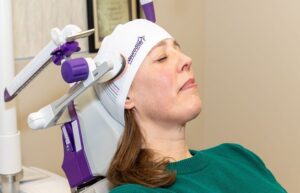What is the link between PTSD and addiction?
3 min read
Mental health and physical health treatment are becoming increasingly intertwined. Research and clinical experience reveal no clear line between the two. Many disorders, such as eating disorders, are explicit in their overlap, with symptoms appearing in both mental and physical variations. Recent research has also shown a connection between clinical depression and systemic inflammation, such as PTSD and addiction and coping mechanisms and physical and psychological health.
A recent study explored the impact of psychological trauma on bodily health. Based on earlier research suggesting coping strategies following trauma may impact physical health, the new study examined how coping mechanisms like drinking might mediate the connection between physical symptoms and sexual trauma. The researchers surveyed a large sample of female college students that had recently engaged in heavy episodic drinking or binge drinking and selected 722 females that had a history of at least one unwanted sexual experience. They also included the responses of 105 controls that did not report any traumatic experiences.

This infographic was created by Veteran Car Donations
Researchers asked the participants to report on past traumas, including childhood victimization and sexual experiences. They asked participants to indicate any symptoms of post-traumatic stress disorder (PTSD) relating to the most stressful situation they had ever encountered, including sexual trauma. The participants were also asked to report on any avoidant coping they engaged in, except any coping managed through substance abuse. They were asked to describe any physical health problems, such as headaches or sore muscles, and they were asked to report how many drinks they consumed per week.
The researchers used the responses to divide the participants into one of three groups: sexual assault with no PTSD, sexual assault with PTSD, and no trauma reported. The results showed a decrease in physical health problems among those that had not experienced any trauma. Those with PTSD indicated more physical health complaints than those in the no PTSD group. Those in the PTSD group also used both avoidant coping and drinking when compared with the other two groups.
Avoidant coping diminished the relationship between physical health complaints and trauma. Drinking behaviors were not able to help explain the relationship between physical health problems and the trauma group.
The authors of the study cite several limitations to their findings, including the use of only heavily drinking female college students and the inclusion of only one kind of psychological trauma, sexual trauma. There was also a low response rate of only 37 percent, so it may be difficult to generalize the findings to other segments of the population.
The data also relied on self-reports from participants, which carries the risk of poor recall and biases inherent to self-report. The study also had a cross-sectional design, so it is impossible to draw conclusions about a possible causal relationship between the variables examined.
The results demonstrate a relationship between PTSD, physical complaints, avoidant coping strategies, and heavy drinking. The study finds that there is a more sound explanation provided in the use of avoidant coping and the presence of physical health problems when compared to drinking. The experience of trauma and subsequent PTSD, even more than the trauma alone, increases the risk for avoidant coping patterns that lead to physical health problems.







